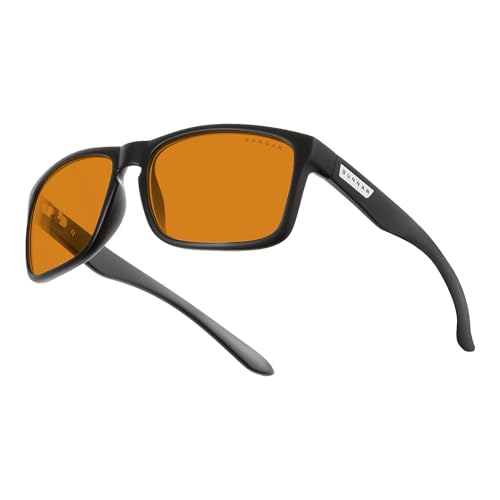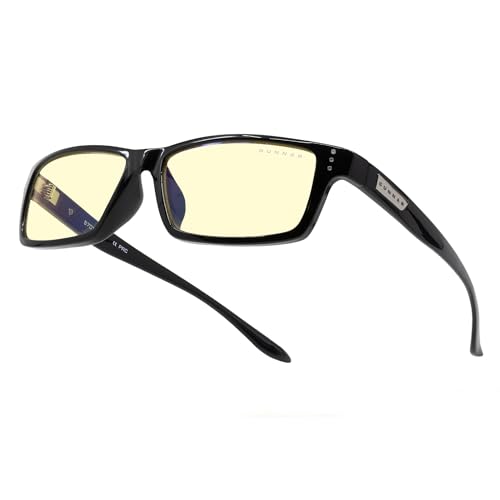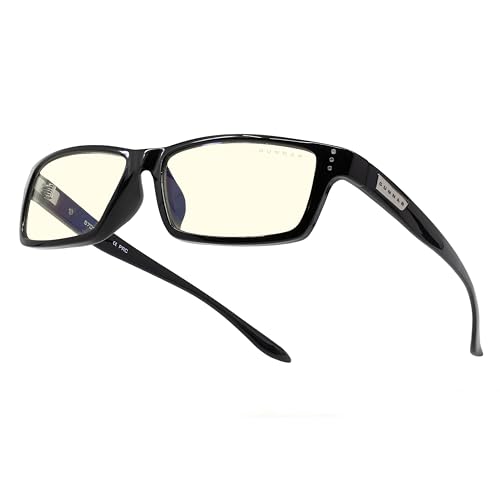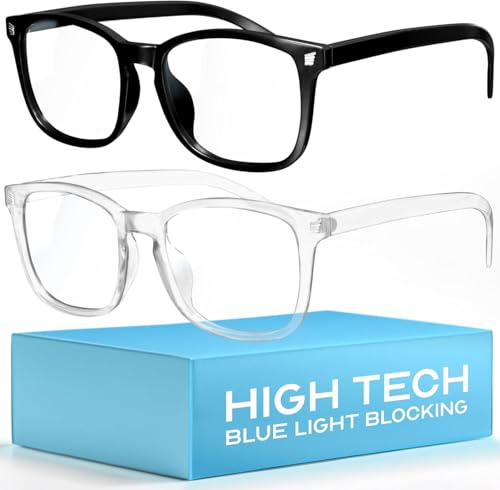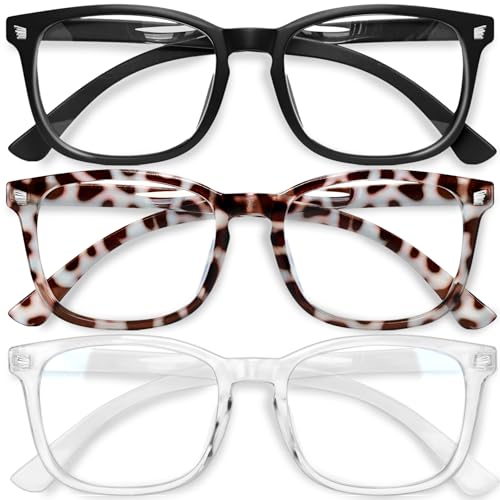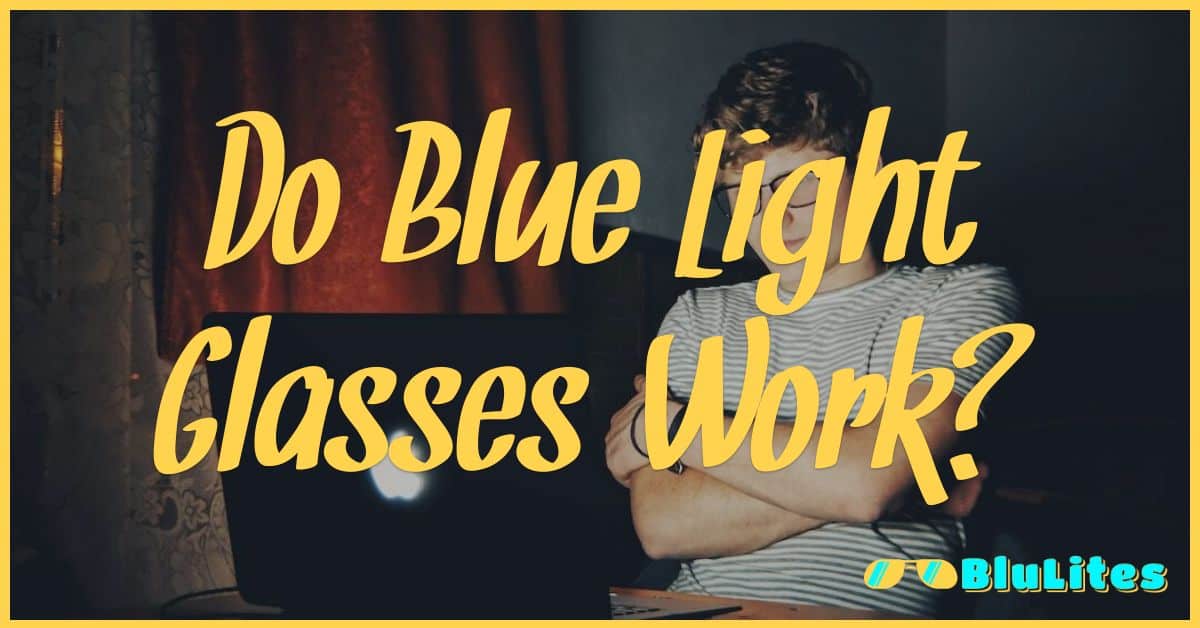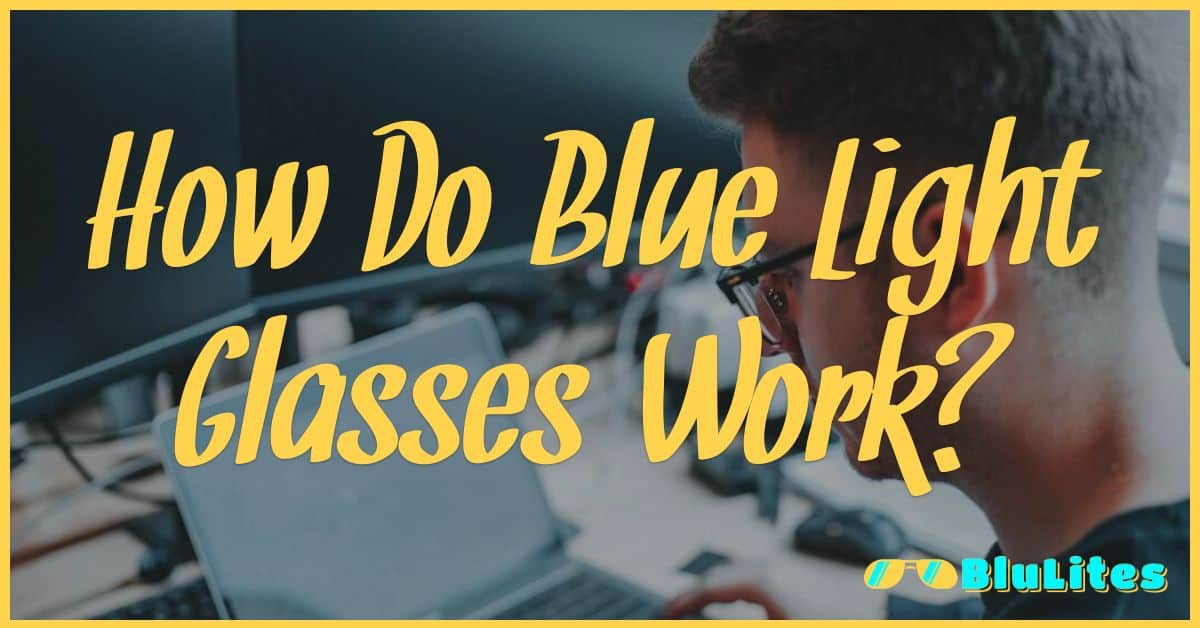Every day, you’re exposed to blue light from a variety of sources – be it your phone, your computer, or even the sun. In response, the market has been flooded with blue light glasses that claim to shield your eyes from this potentially harmful light. You’re likely wondering: can you wear blue light glasses all the time?
The answer isn’t a straightforward one. Whether it’s beneficial or detrimental to wear these glasses all day does depend on a variety of factors. From the amount of blue light you’re exposed to, to your particular sensitivity towards it, many elements play a role.
To simplify it, wearing blue light glasses constantly is not necessarily a bad thing. However, it’s not always needed either. These glasses can be a beneficial tool for protecting your eyes, but they shouldn’t be seen as an end-all solution, and a deeper understanding is needed to take full advantage of them.
Understanding Blue Light and Its Impact on Your Eyes
Ever wondered about the role that blue light plays in your life? Most of us are exposed to blue light every day, particularly now that digital screens have become such a dominant part of our daily routines. It’s essential to get a handle on what blue light is, where it comes from, and how it can possibly impact your eyes.
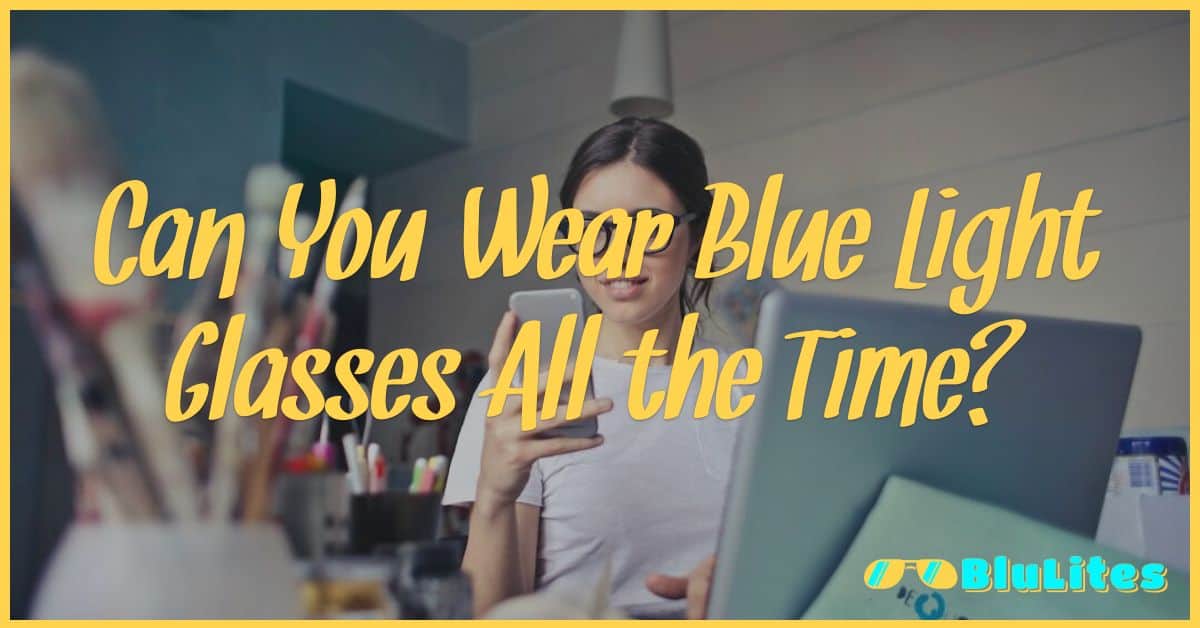
Blue light is a portion of the visible light spectrum with short wavelengths and high energy, and it’s not only digital devices that produce it. The sun is actually the primary source of blue light. Yet, you can’t dismiss the influence of digital sources, such as LED lights, flat-screen TVs, computer monitors, smartphones, and tablets. They all emit considerable amounts of blue light and we tend to hold these devices fairly close to our eyes, intensifying exposure.
This continuous exposure to blue light has raised some concerns among the public and experts. Some studies suggest that excessive blue light exposure can negatively impact your eyes, leading to symptoms commonly known as digital eye strain or computer vision syndrome.
You might be asking, what exactly do these symptoms include? Here’s a quick rundown:
- Eyestrain
- Headaches
- Physical and mental fatigue
- Blurry vision
- Difficulty in focusing at a distance
- Dry and irritated eyes
Moreover, our prolonged exposure to blue light at nighttime might interfere with the body’s natural sleep-wake cycle, commonly known as our circadian rhythm. This can potentially lead to problems with sleeping and overall health issues.
Existing research, though, does not confirm that blue light exposure from computers and other digital devices leads to long-term damage to your eyes, like macular degeneration.
Remember, each person reacts differently to blue light exposure. Circumstances such as the duration and intensity of exposure, the distance from the screen, and existing eye conditions can all alter the effects.
Armed with this new knowledge, you’re better equipped to make informed decisions about protecting your eyes from potential overexposure to blue light.
Diving Into How Blue Light Glasses Work
So, what’s the deal with blue light glasses and how do they even work? Well, the answers are more interesting than you might think! Blue light glasses have special lenses designed to filter out the excessive blue light that emits from digital screens. You’re exposed to it all the time — from your smartphone or computer, TV, and even the LED lights around your home.
Wearing blue light glasses aims to reduce the potential strain and discomfort your eyes may experience after long exposures. Despite the name, the lenses often have a slight yellowish tint rather than blue, which blocks the shorter, high-energy blue and violet light wavelengths. That said, it’s critical to note that not all blue light is bad. In fact, natural blue light from sun plays an essential role in regulating your sleep-wake cycle, also known as your circadian rhythm.
Let’s look at how much blue light different devices emit using this table:
| Device | Blue light emission % |
|---|---|
| Smartphone | 33% |
| Tablet | 31% |
| Computer | 28% |
| Television | 21% |
However, remember, not all blue light is created equal. The blue-turquoise light range around 465 to 495 nm is generally considered beneficial for your mood and cognitive performance. But the range close to UV on the spectrum, around 415 to 455 nm, is the high-energy visible light that blue light glasses are designed to block.
Here’s a list to consider when shopping for blue light glasses:
- Make sure they filter out at least 90% of blue light in the 415 to 455 nm range.
- Don’t be misled by darker lenses. Actually, the lens color doesn’t matter; it’s the coating on the lens that blocks blue light.
- Lastly, quality varies, so do your research and read reviews before purchasing.
By understanding how blue light glasses work, you can make an informed decision about whether they’re right for your lifestyle and daily routine. Don’t forget to take regular breaks from screens for your eyes to rest, with or without blue light glasses!
Can You Really Don Blue Light Glasses 24/7?
Let’s face it, we’re living in a digital age. Screens are everywhere. You might be wondering if wearing blue light glasses all the time is a good idea. Well, to answer that, let’s dive into what research suggests.
Blue light glasses are designed to block or filter out blue light emitted from digital screens. There’s a common belief that this light can cause digital eye strain, sleep cycle disruption, and even retinal damage. But, it’s critical to note that there’s no strong scientific evidence to back these claims.
No doubt, you’ve noticed industry claims that wearing blue light glasses all the time can help alleviate tiredness, headaches, and eye discomfort due to prolonged screen time. However, The American Academy of Ophthalmology doesn’t explicitly endorse these glasses, suggesting instead that individuals should simply adjust their screen-use habits and blink regularly.
Here’s a quick comparison table too:
| Blue Light Glasses | Regular Habits | |
|---|---|---|
| Ease Tiredness | Yes | Yes |
| Help headaches | Maybe | Yes |
| Reduce Eye Discomfort | Maybe | Yes |
That being said, there simply isn’t a one-size-fits-all answer to whether you can or should wear blue light glasses all the time. Factors such as your eye health, regular activities, and even your personal preferences come into play.
- If you’re someone spending the majority of your day in front of screens, whether for work or pleasure, you might find these glasses useful.
- If you’re older and your eyes have natural difficulty blocking blue light, these glasses may be worth considering.
- If you’re sensitive to light or prone to getting headaches, blue light glasses could potentially offer some comfort.
In summary, while there don’t seem to be any dire consequences to wearing blue light glasses 24/7, you also may not need them as much as you think. Always remember to give your eyes a break, blink often, adjust your screen brightness, and position your screen to reduce glare. These simple steps can go a long way to mitigate screen related eyestrain. Experiment and see what works best for you. It’s your eyes, after all.
Examining the Benefits of Wearing Blue Light Glasses Regularly
Are you spending countless hours in front of computer screens and smartphones? If you’re answer’s yes, blue light glasses should be on your shopping list. Wearing these glasses regularly introduces various benefits to your everyday life.
Reduced Eye Strain is the most prominent payoff. Digital devices emit blue light, which can cause digital eye strain. This condition, characterized by blurry vision, difficulty focusing, dry and irritated eyes, can be significantly mitigated by wearing blue light glasses.
Better Sleep Quality is another area where you’ll notice the impact. Nighttime exposure to blue light can disrupt your body’s natural sleep-wake cycle, making it harder to fall asleep. By filtering out blue light, these glasses help maintain your body’s natural rhythm, leading to improvement in sleep quality.
Headache prevention is yet another benefit. Regular exposure to blue light can lead to headaches and migraines. Thankfully, blue light glasses can minimize this risk, since they reduce the strain on your eyes.
While the benefits of wearing these glasses regularly are numerous, it’s worth noting that they shouldn’t replace other healthy habits. Incorporating regular screen breaks, maintaining a healthy diet, and ensuring you receive adequate natural light are also fundamental for eye health.
Addressing Common Misconceptions About Blue Light Glasses
Let’s dive in and dispel some common myths about blue light glasses.
Firstly, wearing blue light glasses doesn’t mean losing your natural resistance to blue light. It’s essential to understand that your eyes have natural mechanisms to cope with blue light exposure. However, the problem arises when there’s excessive exposure, typically from electronic devices used for extended periods. Blue light glasses merely assist in reducing the strain from this overexposure.
A misconception you might have heard is that all blue light is bad. This isn’t precisely accurate. While excessive blue light exposure can potentially impact your sleep cycles and eye health, some blue light is actually beneficial. It’s known to boost alertness and mood, even aiding in cognitive functions. Refer to the table below for a breakdown of the effects:
| Blue Light | Potential Impact |
|---|---|
| High Exposure | Sleep Disruption, Eye Strain |
| Low Exposure | Improved Alertness, Enhanced Mood |
For those wondering, it’s not harmful to wear blue light glasses all day. Actually, the benefits may extend beyond simply protecting your eyes from digital screens, aiding in reducing exposure from other artificial light sources as well.
A common query is, ‘Will wearing blue light glasses impact my vision in the long run?’ Based on current research, there’s no evidence suggesting a long-term change in vision due to blue light glasses. The purpose is to reduce eye strain and minimize potential disruptions to your sleep cycle.
Here’s the bottom line: Remember that blue light glasses are not a one-size-fits-all solution. It’s best to understand your individual needs and exposure levels. Also, incorporating habits like taking regular breaks from screen time and practicing eye exercises can be equally beneficial.
In essence, while misconceptions about blue light glasses abound, being informed is an excellent defense. Being aware of the potential risks of blue light exposure can ensure you use these glasses to your advantage.
Unveiling Potential Side Effects of Constant Use
While blue light glasses come with numerous benefits, constant use might also introduce a few side effects. You’ve probably heard about how they aid in reducing digital eye strain and enhance sleep quality. Yet, it’s essential to know that everything in excess could potentially lead to harm. Let’s delve into a few of the possible side effects of wearing blue light glasses all the time.
One possible concern about wearing blue light glasses constantly is their impact on your circadian rhythm. Yes, these glasses filter out the blue light that can interfere with your sleep. However, your body also uses blue light to sense when it’s daytime and adjust your circadian rhythm accordingly. When you’re wearing these glasses all day, especially when exposed to natural daylight, you’re limiting your exposure to beneficial blue light, which could skew your body’s internal clock.
Additionally, incorrect use can lead to complacency about screen time. Utilizing blue light glasses should not provide an excuse to excessively use screens without breaks. It’s crucial to remember that these glasses help manage symptoms of eye strain rather than eliminate it completely. Your eyes still need regular breaks from prolonged exposure to screens, no matter what kind of protective eyewear you’re using.
Here’s a summarized list of the potential side effects of wearing blue light glasses all the time:
- Potential disruption to your circadian rhythm
- Potential increase in screen time
Lastly, these glasses do not offer protection from all problems related to prolonged screen use. Some common issues include posture-related discomfort and repetitive strain injuries, which can’t be mitigated through wearing blue light glasses. This doesn’t mean you should abandon your glasses, but instead maintain balanced tech habits, such as implementing regular screen breaks and proper ergonomics in your workstation setup.
In the end, while blue light glasses are beneficial instruments striving to help you deal with digital world’s challenges, continuous and uncritical usage could lead to unexpected side effects. You’ve learned what potential risks are associated with constant use of blue light glasses. It’s now up to you to don them responsibly and in moderation. From balancing your exposure to blue light to ensuring healthy screen habits, careful use of these glasses can aid in achieving optimal digital comfort and wellness.
How Consecutive Usage Might Alter Your Sleep Routine
If you’re fond of wearing your blue light glasses around the clock, your body’s sleep routine might be in for a shake-up. Here’s why: Blue light glasses are specifically designed to filter out the blue light emitted by digital devices. But you may not realize that blue light isn’t only a gadget thing — it’s also a natural part of sunlight.
In the daytime, exposure to blue light can boost your attention, reaction times, and mood. It’s Mother Nature’s way of keeping you alert and productive. However, when the sun goes down, blue light exposure decreases, signaling your body that it’s time to sleep. This blue light switch-off triggers the secretion of melatonin, the hormone that helps you get a pleasant, restful night’s sleep.
Average Melatonin Levels
| Time | Average Melatonin Level (pg/mL) |
|---|---|
| 03:00 PM | 2.8 |
| 09:00 PM | 30.7 |
| 03:00 AM | 69.7 |
Data gathered from a research conducted on adults aged 18-30
So, does wearing blue light glasses all the time make a difference? Yes, it could very well. If you’re constantly blocking blue light, you might also be tricking your body into thinking it’s always after sunset. This can lead to tiredness and sluggishness during the day, and potentially throw off your natural sleep-wake cycle.
Now, this doesn’t mean you should give up on your glasses. They’re still a godsend for digital eye strain. Encapsulating it, you’re encouraged to use your blue light glasses judiciously. Try sticking to wearing them during heavy screen time, and giving your eyes a break when you’re off the device.
Remember, sudden changes to your daily rhythm can cause more harm than good. Always consult your eye doctor or a sleep expert before making significant adjustments to your sleep routine.
A Peek Into Professional Opinions: What Optometrists Think
So, exactly what do the experts say about wearing blue light glasses all the time? Let’s tap into the wisdom of optometrists to give you a well-rounded perspective.
Many optometrists agree that blue light glasses can help to reduce eye strain and improve sleep quality. They are proponents of wearing these glasses, particularly if you spend long hours in front of a screen. According to The American Optometric Association, extended screen time may lead to computer vision syndrome or digital eye strain, and using blue light glasses could help alleviate these symptoms.
However, it’s important to note that not all optometrists are on the same page. Some believe that the potential dangers of blue light have been overstated. These professionals argue that there’s not enough scientific evidence to fully support the claim that blue light from screens could lead to long-term eye issues.
Now, let’s take a look at a small percentage breakdown:
| Beliefs | Percentage of Optometrists |
|---|---|
| In Favor of Blue Light Glasses | 50% |
| Believe Blue Light Danger is Overstated | 40% |
| Undecided | 10% |
This table elucidates that the professional community is somewhat divided on the matter. Yet, what’s undeniable is the fact that these glasses could provide immediate benefits such as reduced eye strain and potentially better sleep.
If you’re considering blue light glasses, your best bet would be to have a chat with your own optometrist. They know your eyes best and could give personalized advice based on your specific needs and lifestyle.
To sum it up, while there’s no definitive answer to whether you can wear blue light glasses all the time, diving into professional opinions reveal quite a balanced view. It’s ultimately your decision, and weighing the pros and cons could guide you in the right direction. Just remember, whatever variant of blue light glasses you choose to go for, make sure they’ve been properly tested and validated to ensure they truly filter blue light as claimed.
Alternatives and Complements to Wearing Blue Light Glasses
While you’re considering whether to incorporate blue light glasses into your daily routine, you might be wondering about what other options are available or what additional steps you can take to protect your eyes. You’re not alone! Many people are looking for alternative ways to reduce the impact of digital devices on their vision.
One easy strategy is to adjust the blue light filters on your devices. Many modern digital screens come with built-in settings that reduce the emission of blue light. These adjustments can help shield your eyes without needing to wear glasses.
Regular breaks are another good practice. The 20-20-20 rule suggests that every 20 minutes, you take a 20-second break and look at something 20 feet away. This practice gives your eyes a rest from the intense blue light and can reduce strain.
In addition to these strategies, certain dietary changes can help protect your eyes overall. Foods high in vitamins A, C, and E, as well as zinc and omega-3 fatty acids, are beneficial for eye health. Fish, oranges, eggs, nuts, and leafy green vegetables are all good choices.
Moreover, you should still consider using other types of protective eyewear along with blue light glasses. For example, sunglasses with UV protection can shield your eyes from harmful ultraviolet light, especially if you’re in an outdoor setting.
Safety eyewear may be necessary if you’re working with tools or in areas where debris can fly into your eyes.
Lastly, don’t forget about the benefits of regular eye check-ups. Your optometrist can provide personalized advice based on your specific vision needs. Early detection of any problems gives you the best chance of managing them effectively.
Remember, while blue light glasses can certainly help, they are just one of many options to protect your eyes in the digital age.
Here’s a quick summary for you:
- Adjust your devices’ blue light filters
- Practice the 20-20-20 rule
- Adopt a diet rich in vitamins A, C, E, zinc, and omega-3 fatty acids
- Use other protective eyewear as needed
- Never skip your regular eye check-ups
Consider these alternatives and complements to wearing blue light glasses as necessary adjustments for a well-rounded approach to maintaining your eye health.
Expanding Your Knowledge: Concluding Thoughts on the Topic
We’ve journeyed a long way in our discussion on blue light glasses. You’ve learned the science behind blue light, we’ve debunked myths and you’re now more familiar with what the wearing of blue light glasses entails. It’s normal to ask, ‘Is it okay to keep my blue light glasses on all the time?’ The answer, as we’ve found, is a bit more nuanced than a simple yes or no.
By now, you’ve realized that wearing blue light glasses isn’t harmful. However, their usage should correspond with your exposure to artificial blue light. That means if you spend significant periods in front of digital screens, then it’s beneficial to don these glasses. They can help minimize the potential strain on your eyes and your exposure to blue light.
Let’s take a quick recap of the key points:
- Blue light glasses aren’t harmful.
- They’re most useful if you’re routinely in front of digital screens.
- They can help with Digital Eye Strain (DES) and potentially improve your sleep patterns.
At the end of the day, it’s all about balance. Just like everything else in life, excessive use may not be beneficial. For instance, if you’re not exposed to high levels of artificial blue light, there’s no need to have these glasses on 24/7. Additionally, it’s valuable to take breaks from screens, maintain good digital habits (like adjusting screen brightness and text size), and ensure the lighting in your work environment is comfortable.
Don’t let the supposed fear of blue light disrupt your every day. After all, scientists agree that the largest source of blue light is from the sun and it’s essential for good health. Be informed, make the best decision for you, and remember—glasses or no glasses—taking care of your vision health is paramount.
Can you wear blue light glasses all the time? The ball is in your court. Therefore, armed with all this knowledge, you’re now well equipped to make the decision that best suits your lifestyle and eye health needs.

